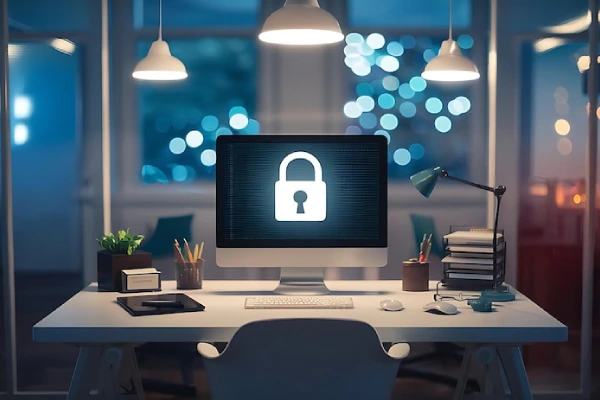Virtual Office Space Security: Ensuring Data Privacy And Confidentiality In India
With the rise of digital work environments, virtual office spaces have become essential for many businesses in India. These virtual setups allow companies to operate without a physical office, providing flexibility and reducing costs. However, this convenience comes with the responsibility of ensuring that data remains private and confidential. Here’s a straightforward guide to understanding and securing virtual office spaces in India. A virtual office space enables employees to work remotely while the business upholds a professional presence.
Why Is Data Privacy Important?
In a virtual office, sensitive information—including financial data, personal client details, and proprietary business information—is shared and stored online. Protecting this data is essential to prevent unauthorized access, which could result in data breaches, financial loss, and harm to a company's reputation.


Indian Regulatory Landscape
India has regulations in place to protect data privacy. The Information Technology Act, 2000, provides a framework for data protection, and the upcoming Personal Data Protection Bill aims to enhance these protections further. These laws require businesses to implement strong security measures to protect personal data.
Key Security Measures For Virtual Office Spaces
1. Encryption
Encryption converts data into a code to prevent unauthorized access. By encrypting emails, files, and communications, businesses can ensure that even if data is intercepted, it remains unreadable without the proper decryption key.
2. Secure Access Controls
Implementing secure access controls is essential. Multi-factor authentication (MFA) requires users to verify their identity in multiple ways before accessing data. Role-based access control (RBAC) ensures that employees only access the information necessary for their roles, reducing the risk of data breaches.
3. Regular Security Audits
Regular security audits help identify and fix vulnerabilities in the system. These audits should include a review of software, hardware, and network systems to ensure they are secure and up to date.
4. Data Backup And Recovery
Regular data backups ensure that information is not lost in case of an incident. Automated backup solutions regularly copy and store data securely. A good recovery plan enables businesses to quickly restore data if needed.
5. Employee Training And Awareness
Human error is a common cause of data breaches. Regular training programs on cybersecurity best practices help employees understand the importance of data privacy and how to protect sensitive information. Awareness reduces the chances of accidental data exposure.
Leveraging Technology For Security
1. Virtual Private Networks (VPNs)
VPNs provide a secure connection over the internet, encrypting data transmitted between the user's device and the network. Using a VPN ensures that data remains protected, especially when accessing public Wi-Fi networks.

2. Cloud Security Solutions
Many businesses use cloud services for storage and operations. Reputable cloud providers offer security features like encryption, access controls, and regular updates. Choosing the right provider and configuring security settings properly ensures data safety.
3. Artificial Intelligence (AI) And Machine Learning
AI and machine learning can detect unusual patterns and potential threats in real time. These technologies automate the identification and mitigation of security risks, adding an extra layer of protection.
Challenges In India
1. Infrastructure And Connectivity
Reliable internet access is crucial for virtual office spaces. Investing in high-quality internet services and backup connections helps ensure smooth operations and security.
2. Legal And Compliance Issues
Staying compliant with data protection laws can be challenging. Businesses need to keep up with regulatory changes and seek legal advice to ensure they comply with the latest data protection regulations.
3. Cybersecurity Skill Gap
India faces a shortage of skilled cybersecurity professionals. To bridge this gap, businesses can invest in training programs for their existing IT staff and collaborate with cybersecurity experts for specialized knowledge and support.
As virtual office spaces become more common in India, ensuring data privacy and confidentiality is vital. By implementing strong security measures, using advanced technologies, and fostering a culture of security awareness, businesses can protect their sensitive information. Staying proactive about security helps maintain trust with clients and stakeholders, allowing businesses to thrive in the digital age.